All Stories
-
 Science & Society
Science & SocietyAnti-leukemia vaccine reported hope of future
Fifty years ago, Science News Letter reported on the promise of a vaccine to prevent leukemia. No preventive vaccine has come to pass, but leukemia vaccines as treatments has yielded promising results.
-
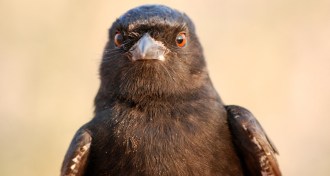 Animals
AnimalsBird mimicry lets hustlers keep cheating
Drongos are false alarm specialists that borrow other species’ warning sounds and freshen up their fraud.
By Susan Milius -
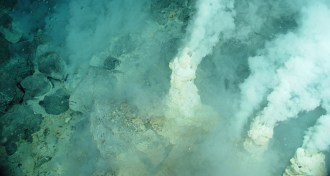 Microbes
MicrobesViruses buoy life at hydrothermal vents
Using hijacked genes, deep-sea viruses help sulfur-eating bacteria generate power in the plumes of hydrothermal vents.
By Beth Mole -
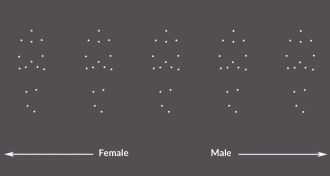 Neuroscience
NeuroscienceHumans can sniff out gender
A new study adds to controversy of whether people have pheromones.
By Meghan Rosen -
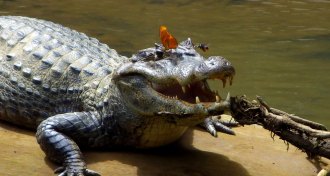 Animals
AnimalsCaiman tears make a salty snack
An ecologist observed a bee and a butterfly hovering around a caiman, engaging in lacryphagous behavior, slurping up the crocodilian’s tears.
-
 Psychology
PsychologyLeonardo da Vinci may have invented 3-D image with ‘Mona Lisa’
A mysterious copy of the ‘Mona Lisa’ combines with the Louvre painting to make a stereoscopic image of the woman with the enigmatic smile.
-
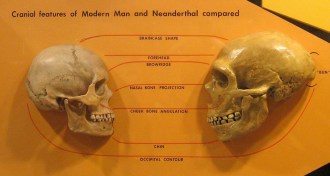 Humans
HumansNeandertals’ inferiority to early humans questioned
Early modern humans may not have been smarter or more technologically or socially savvy than their Neandertal neighbors.
-
 Health & Medicine
Health & MedicineDrug resistance has gone global, WHO says
World Health Organization reports that antibiotics are failing worldwide against infections.
By Nathan Seppa -
 Health & Medicine
Health & MedicinePotential H7N9 bird flu vaccine shows promise
An early trial of a bird flu vaccine suggests that the treatment could be used to counter the potentially deadly H7N9 flu virus.
-
 Health & Medicine
Health & MedicineWith help from pig tissue, people regrow muscle
Noncellular material implanted in patients attracts stem cells to fix injuries.
By Nathan Seppa -
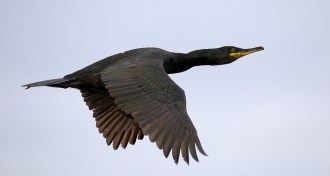 Environment
EnvironmentPrestige oil spill linked to drop in seabird chicks
European shag in colonies affected by the 2002 Prestige oil tanker spill produced fewer chicks than birds in oil-free colonies.
-
 Astronomy
AstronomyExoplanet spin measured for first time
Astronomers measure the spin of a planet outside our solar system, and its days are short: just over eight hours.